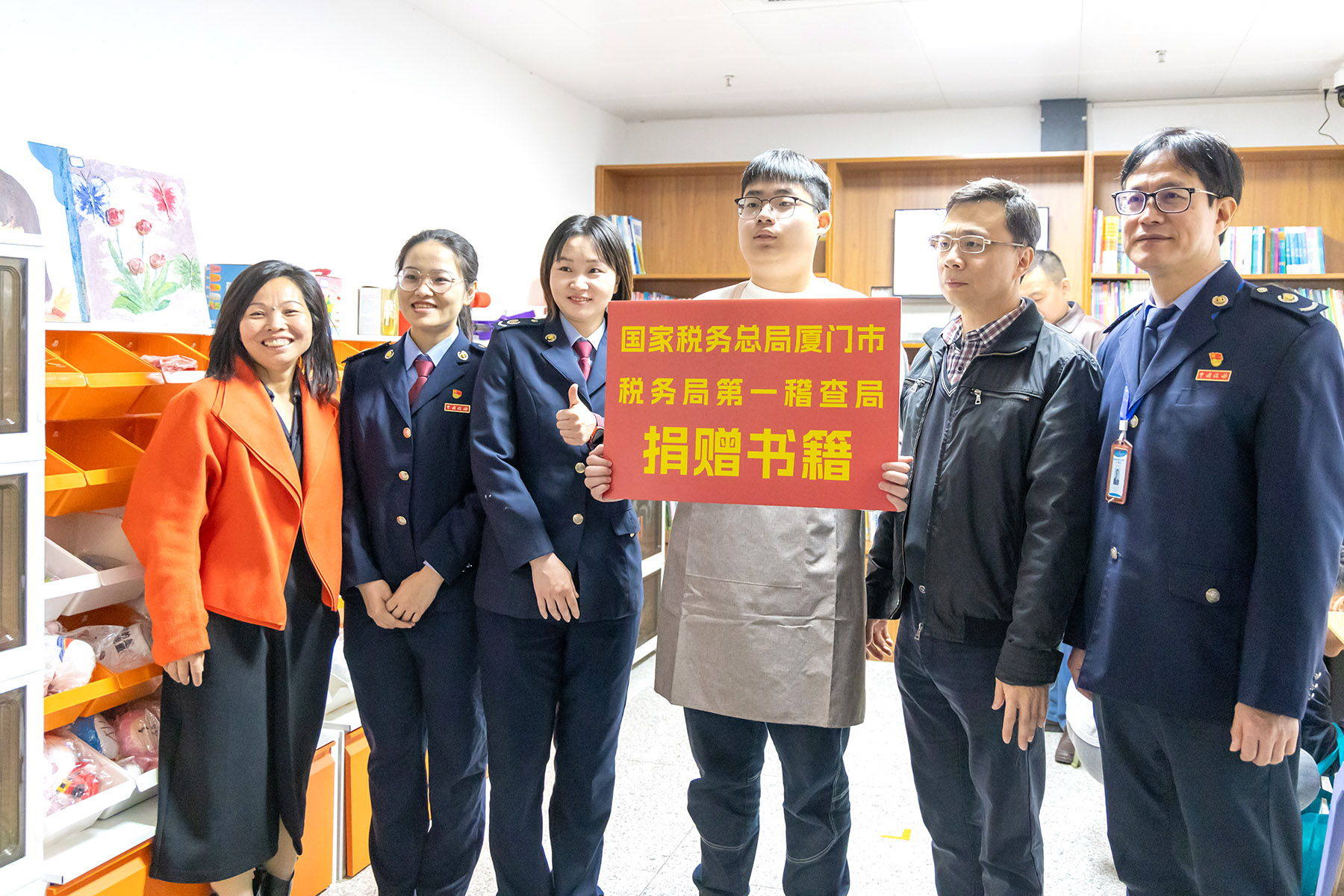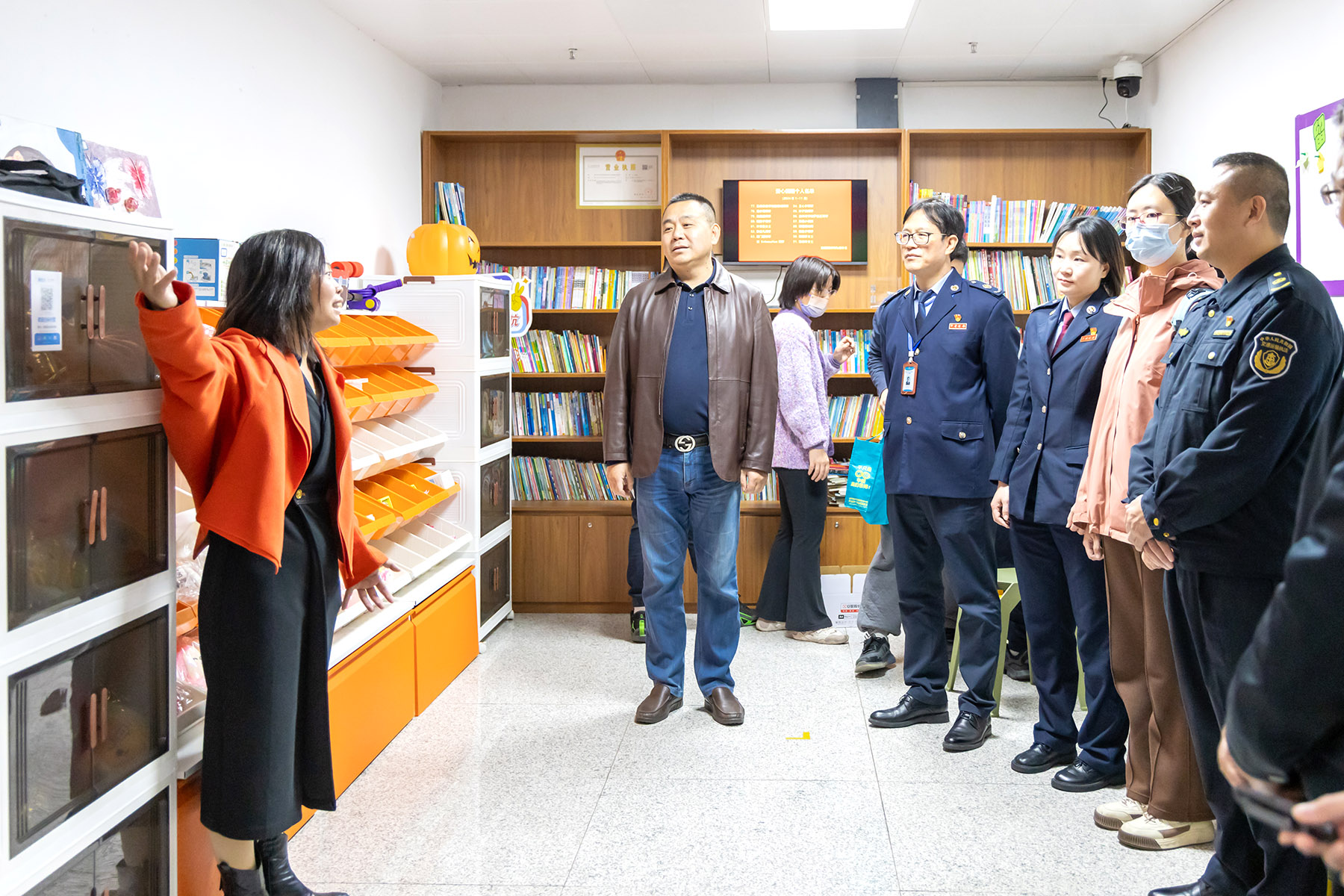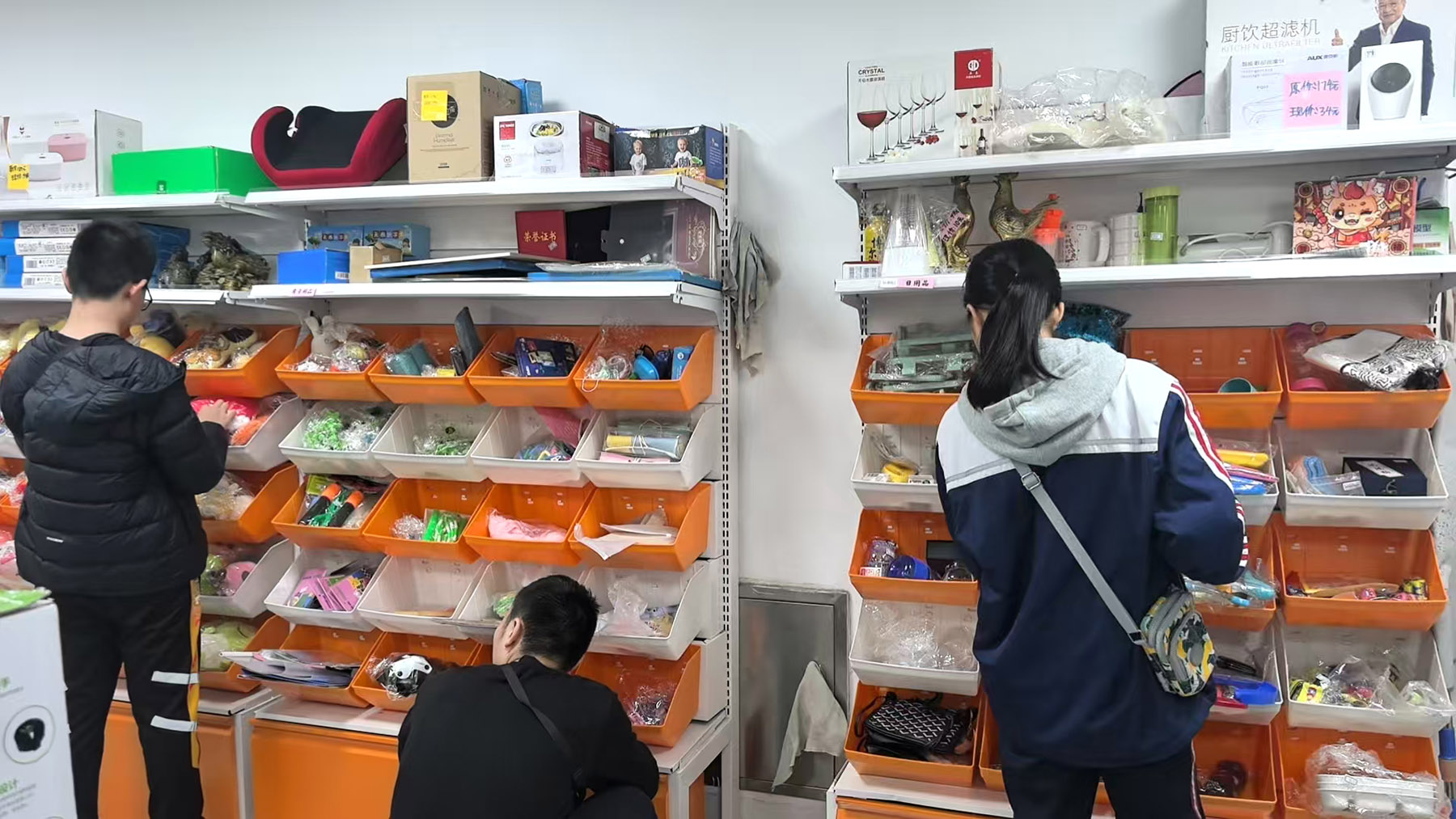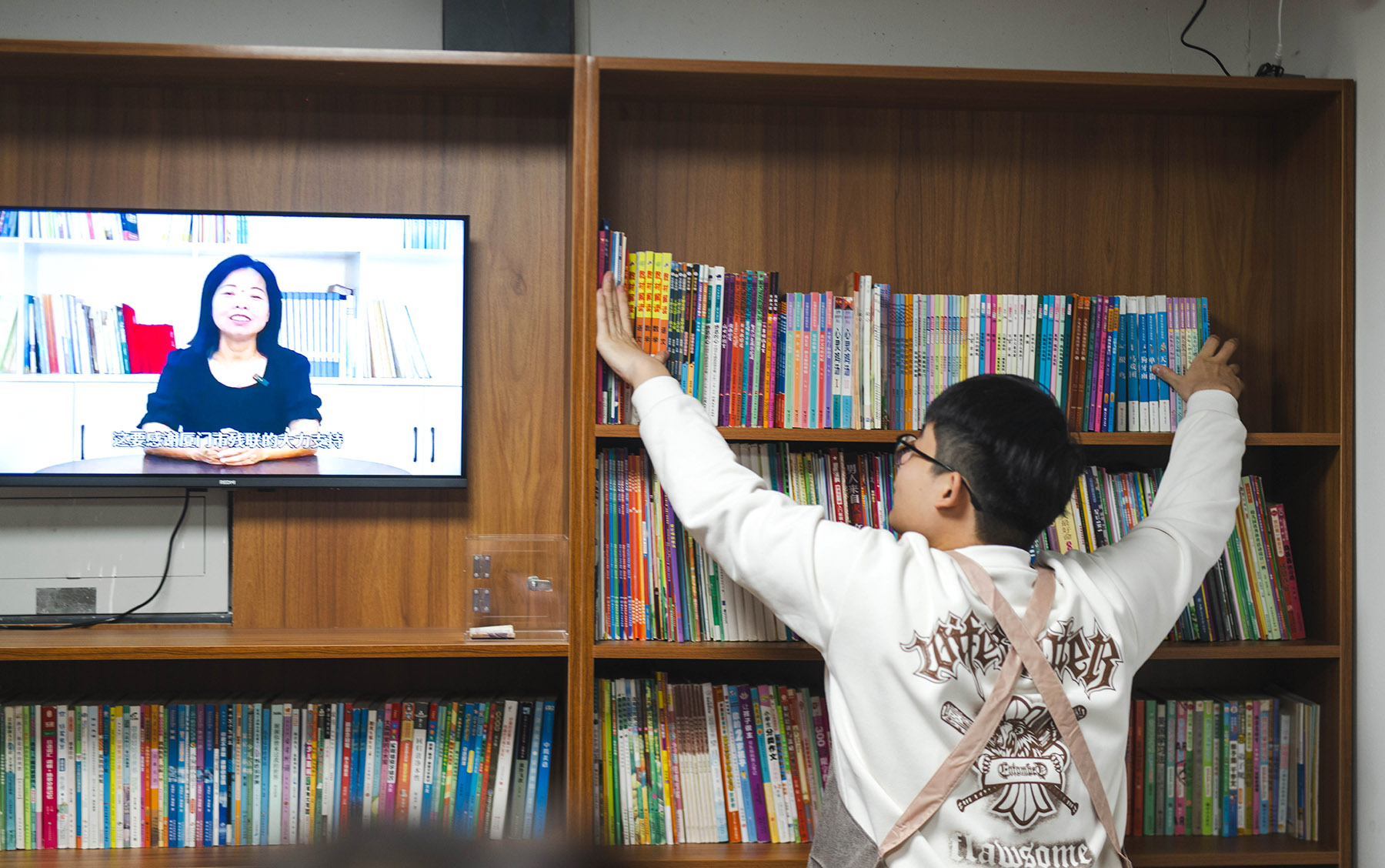Shops designed to provide employment and teach young people with autism transferable skills, Cheng Yuezhu reports.

In three metro stations in Xiamen, Fujian province, you'll find tiny shops. Their doors have never closed, and they welcome any passerby to browse for books, toys, and other items.
They are the Xingyunxing (Lucky Star) Charity Goods Transfer Stations, and the three shops are mostly self-service. To make a purchase, customers simply look up the price and scan the code, particularly at night, when the shops are untended.
While most of the products are secondhand, they are carefully taken care of and arranged. Run by the Xiamen Xingbaobei Children's Intelligence Development Center, the shops provide job opportunities to adults with autism spectrum disorders.
In the morning, an employee cleans the shops, disinfecting the products, and tidying up the shelves. In the afternoon, coaches from the center teach other students with autism how to manage the shops.
The first outpost opened last April and now manages to break even. This March, two new shops opened. Between them, they now have five full-time employees, and provide training opportunities to around 50 students.
READ MORE: Retail therapy, with empathy
Despite being seemingly low-maintenance and simple, the project has taken several years and countless trials and errors to reach this point, explains Luo Liying, founder of the center and of the shops.
"I've been working with autistic children for 24 years, and it's been 11 years since I set up the center. Some of the children have been with us since they were only 6 or 7 years old," she says.
"Now they have grown up, and it's unclear where they'll go next. So I was really anxious to help them find employment."

She has adopted the methods espoused by Zhen Yuelai, a specialist in autism intervention and education, which holds that a main goal of autism intervention is to improve social functioning.
From an early age, children have been coming to Luo's center after school. There, they are taught how to integrate into different social environments — family, school and community. The final environment is the workplace, which is now supplemented by experience in the shops.
"We have compulsory education, but not compulsory employment. If young adults with autism don't start working and step back from society, they can easily backslide, which would be a great pity, as everything they have worked so hard for might then go to waste."
Luo experimented with different ideas before landing on the shops, but most proved to be failures. She even opened a restaurant, and thought that her students could work as dishwashers, but the facility required too much effort, and was soon running at a heavy loss.
Around five years ago, she thought of setting up a stall to sell donated goods. Her idea was supported by a local park. She wanted to illustrate to students the relationship between buying and selling, and show them they could make a living by selling things.
"When we actually set up the stall, we were shocked by how many things we had to learn. We thought managing one would be a simple task, but it turned out to involve many skills that needed to be developed," she says.
At first, the students had difficulty understanding some of the basic norms of interpersonal interaction. For example, euphemistic ways of refusal, or appropriate social distance.

Luo describes the process as one of constantly finding, facing, and solving problems. She has filled an entire notebook with notes.
Seeing the progress made by the students over the years, she became increasingly certain that running a shop was the solution. Last year, with support from the Xiamen Disabled Persons' Federation and its subsidiary, the Xiamen Disabled Persons' Employment Service Center, the first shop was opened.
Whenever a donation is received, employees collect the goods from the donors' doorstep, and then sort, sanitize, price, and stock them by themselves.
For safety reasons, Luo always does a basic check on the donors in advance, and makes sure the employees go in pairs when picking up packages.
"An important reason this approach works is sustainability. What the students are learning is useful, like navigation, and communicating with others," she says.
"This is unlike the things we used to teach them, like handicrafts. Once they switch to a different place, such a skill might no longer be useful. Now, we teach them transferable skills. We really would like to think further ahead for them."
The mother of an employee known as Xiaoli wrote to Luo that:"It hasn't been easy to come this far. Every bit of progress my child has made wouldn't have been possible without the guidance, support and care of the teachers. Thank you. This little shop is more than just a workplace for my child. It's a place where he is growing and realizing his worth."
The shops are also part of an initiative by the Xiamen Disabled Persons' Employment Service Center to help people with disabilities improve their living conditions, and integrate into society.

According to Chen Jun, director of the employment service, the center has supported the shops from the start by coordinating with the metro and property companies to reduce rental costs, and by calling for communities and organizations to donate goods, and raising public awareness.
The center also offers Luo's organization professional guidance, and has helped them design an inclusive employment model for individuals with autism supported by different institutions, communities, and governmental policies.
"We position the shops as places that provide adaptive employment training for individuals with autism, helping them with social integration, vocational training, internship, and work opportunities," Chen says.
"The shops act not only as secondhand goods transfer stations, but also as transitional workplaces that prepare these young people for future employment and independent living."
ALSO READ: A sense of service
Among people with cognitive and developmental disabilities, Luo says that it's particularly challenging for those with autism to find a job.
Through the shops, she has felt a sense of warmth and love, with support from the federation, parents and the broader community, companies donating bottled water, and benevolent individuals reaching out to give donations.
One donated more than 1,000 books, and just a few days ago, another individual donated some 70 pairs of new shoes. Luo is often to be found driving around to collect these larger donations, a busy life in which she takes delight.
"The fact that I am meeting kind people everyday gives me immense happiness, and allows me to be more and more confident in what we're doing," she says.
Contact the writer at chengyuezhu@chinadaily.com.cn


